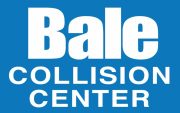The Importance of ADAS Calibration Post-Collision
After a collision, ensuring that your Advanced Driver Assistance Systems (ADAS) are properly calibrated is crucial for maintaining vehicle safety. ADAS technologies, such as lane departure warnings and automatic braking, rely on precise sensor alignment to function effectively. Any misalignment caused by an accident can lead to these systems malfunctioning, potentially putting drivers and passengers at risk.
For example, a misaligned camera can cause the lane-keeping assist feature to fail, leading to unintended lane departures. Regular calibration checks after repairs not only enhance the safety of your vehicle but also ensure compliance with manufacturer specifications, thus preserving your vehicle's warranty and resale value.
How Bale Collision Center Ensures Quality ADAS Calibration
Bale Collision Center employs state-of-the-art technology and trained technicians to perform accurate ADAS calibrations. Our experts utilize advanced diagnostic tools to assess the alignment of sensors and cameras, ensuring they meet the precise specifications required for optimal performance. This meticulous process is essential for restoring the safety features of your vehicle after a collision.
We follow manufacturer guidelines closely and conduct thorough tests post-calibration to verify that all systems are functioning correctly. This commitment to quality not only enhances the safety of your vehicle but also provides peace of mind to our customers, knowing that their vehicles are in capable hands.
Common Signs Your ADAS Needs Calibration
Recognizing the signs that your ADAS may need calibration is vital for ensuring ongoing vehicle safety. Common indicators include warning lights on the dashboard, inconsistent performance of safety features, or noticeable changes in how your vehicle responds to driver assistance technologies. If you experience any of these symptoms, it's crucial to seek professional calibration services promptly.
For instance, if your adaptive cruise control fails to maintain a safe distance from other vehicles or if your blind-spot monitoring system frequently malfunctions, these could be signs of misaligned sensors. Addressing these issues quickly can prevent further complications and ensure that your vehicle's safety systems are functioning as intended.
Frequently Asked Questions About ADAS Calibration
Many vehicle owners have questions regarding ADAS calibration, especially after an accident. One common inquiry is how often calibration is necessary. Typically, it should be performed after any significant collision or when components related to the ADAS systems are replaced. Regular maintenance checks can also help identify when calibration is needed.
Another frequent question involves the time required for calibration. The process can vary based on the vehicle make and model, as well as the extent of the collision damage. At Bale Collision Center, we strive to provide efficient service while ensuring that every calibration is thorough and precise, allowing you to get back on the road safely and quickly.
